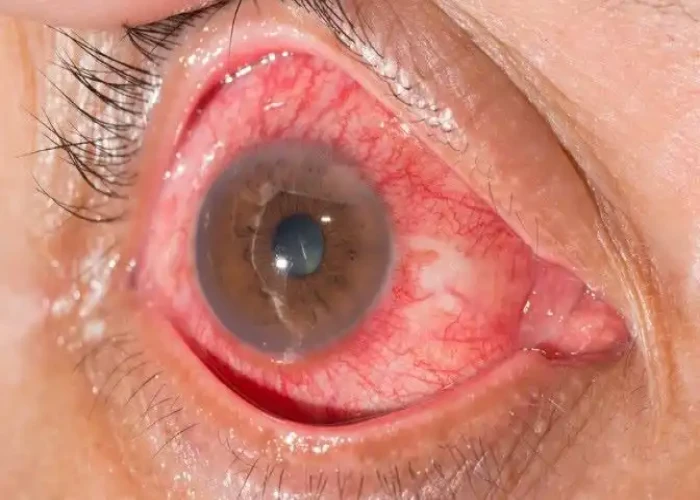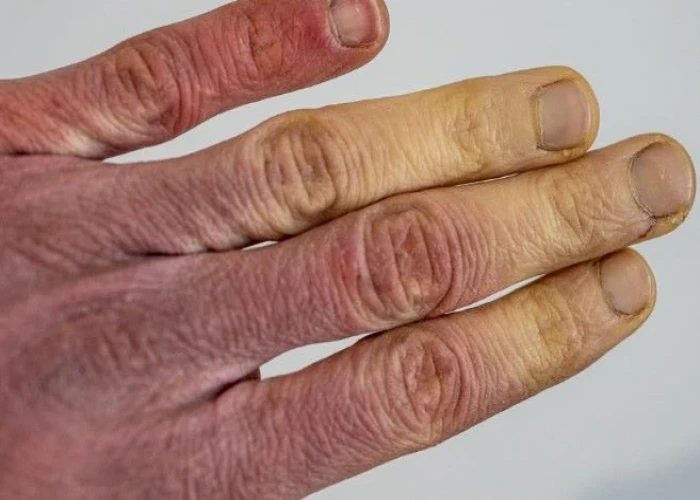 Welcome
Welcome
“May all be happy, may all be healed, may all be at peace and may no one ever suffer."
Schizotypal personality disorder

Schizotypal personality disorder is a mental health condition characterized by a pattern of peculiar or eccentric behaviors, odd beliefs or thinking, and difficulty forming close relationships. Individuals with schizotypal personality disorder may display unusual ideas or perceptions, such as magical thinking, and may have trouble with their speech and other aspects of communication.
The exact causes of schizotypal personality disorder are not fully understood, but it is thought to be influenced by a combination of genetic, environmental, and early developmental factors. The condition may be more common in families with a history of schizophrenia or other psychotic disorders.
Symptoms of schizotypal personality disorder may include:
- Odd or eccentric behavior or appearance
- Unusual or peculiar beliefs or thinking
- Suspiciousness or paranoia
- Inappropriate or constricted affect (i.e. lack of emotional expressiveness)
- Unusual or odd speech patterns
- Social anxiety or discomfort
- Difficulty forming close relationships
- Perceptual and cognitive disturbances, such as magical thinking, illusions or depersonalization.
Diagnosis of schizotypal personality disorder is usually made based on a comprehensive psychiatric evaluation, including a medical history, physical exam, and mental status examination. There are no specific laboratory tests for this disorder, but brain imaging studies such as MRI or CT scans may be performed to rule out other conditions.
Treatment for schizotypal personality disorder typically involves psychotherapy, such as cognitive behavioral therapy or psychoanalytic therapy, aimed at helping individuals improve social and interpersonal skills, develop emotional awareness, and manage symptoms more effectively. Antipsychotic medication may also be used in some cases, to help manage any psychotic symptoms, but is not typically used as a primary treatment for this condition.
With proper treatment and ongoing support, many people with schizotypal personality disorder are able to manage their symptoms and lead fulfilling lives. However, the condition can be chronic and may require long-term treatment and monitoring.
Research Papers
Disease Signs and Symptoms
- Anxiety
- Dressing in peculiar ways, such as appearing unkempt or wearing oddly matched clothes
- Unusual perceptions, such as sensing an absent person's presence or having illusions
- Belief in special powers, such as mental telepathy or superstitions
- Suspicious or paranoid thoughts and constant doubts about the loyalty of others
- Peculiar, eccentric or unusual thinking, beliefs or mannerisms
- Incorrect interpretation of events, such as a feeling that something that is actually harmless or inoffensive has a direct personal meaning
- Persistent and excessive social anxiety
- Flat emotions or limited or inappropriate emotional responses
- Being a loner and lacking close friends outside of the immediate family
- Emotional instability
- Peculiar style of speech, such as vague or unusual patterns of speaking, or rambling oddly during conversations
Disease Causes
Schizotypal personality disorder
Personality is the combination of thoughts, emotions and behaviors that makes you unique. It's the way you view, understand and relate to the outside world, as well as how you see yourself. Personality forms during childhood, shaped through an interaction of inherited tendencies and environmental factors.
In normal development, children learn over time to appropriately interact with others, to interpret social cues, and to respond to social situations appropriately and with flexibility. What exactly goes wrong for a person with schizotypal personality disorder isn't known for certain, but it's likely that changes in the way the brain functions, genetics, environmental influences and learned behaviors may play a role.
Disease Prevents
Disease Treatments
Treatment for schizotypal personality disorder often includes a combination of psychotherapy and medication. Many people can be helped by work and social activities that are a fit for their personality styles.
Psychotherapy
Psychotherapy may help people with schizotypal personality disorder begin to trust others and learn coping skills by building a trusting relationship with a therapist.
Psychotherapy may include:
- Cognitive-behavioral therapy — Identifying and challenging negative thought patterns, learning specific social skills, and modifying problem behaviors
- Supportive therapy — Offering encouragement and fostering adaptive skills
- Family therapy — Involving family members, which may help improve communication, trust and the ability to work together in the home
Medications
There are no medications approved by the Food and Drug Administration specifically for the treatment of schizotypal personality disorder. However, doctors may prescribe an antidepressant to help relieve or reduce certain symptoms, such as depression or anxiety. Some medications may help improve flexibility in thinking.
Disease Diagnoses
Disease Allopathic Generics
Disease Ayurvedic Generics
Disease Homeopathic Generics
Disease yoga
Schizotypal personality disorder and Learn More about Diseases

Gastrogenous Diarrhoea

Dizziness

Non-Hodgkin's lymphoma

Uveitis

Raynaud's disease

Parkinson's disease

Hoarding disorder

Drug addiction (substance use disorder)
Schizotypal personality disorder, স্কিজোটাইপল পার্সোনালিটি ডিসঅর্ডার, স্কিজোটাইপাল ব্যক্তিত্ব ব্যাধি
To be happy, beautiful, healthy, wealthy, hale and long-lived stay with DM3S.
